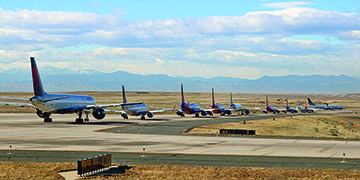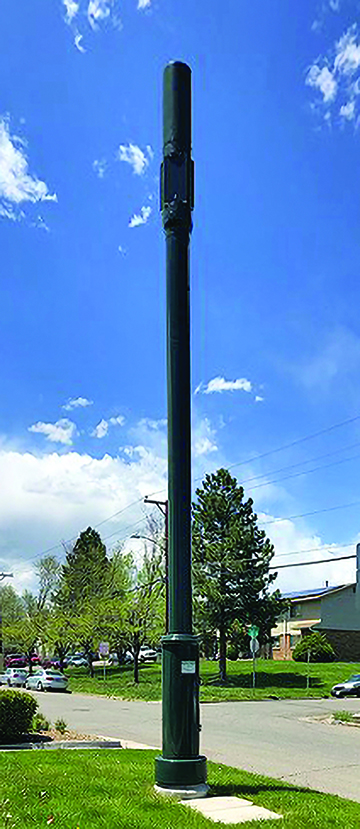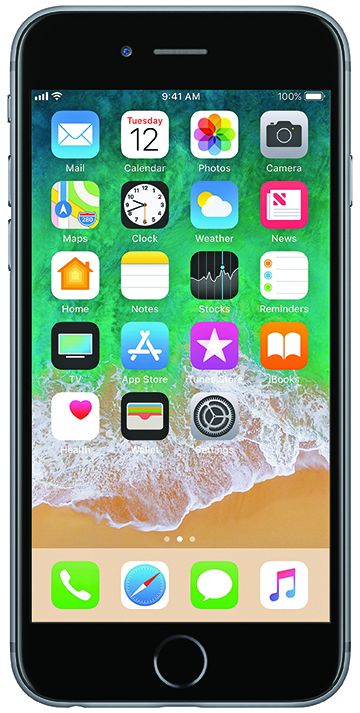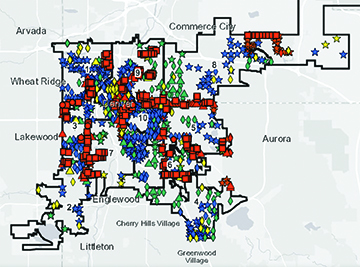FAA Warns Rollout Of 5G Network Could Also Affect Air Safety Including Flights From DIA
by Glen Richardson
Denver’s cellphone carriers are set to begin shutting down their older networks as 2022 gets underway. If and when they do and you have an older device you won’t be able to text, phone friends or make an emergency 9-1-1 call.
The shutdown dates were set to start Jan. 1, 2022, and continue throughout the year. Verizon says their 3G CDMA network will go away no later than the end of 2022. T-Mobile plans to retire all its 3G networks, including those obtained through its merger with Sprint, as quickly as possible as this year begins.
The changeover dates initially appeared to be confirmed. Phone carriers here and elsewhere have been proceeding as if they were permanent and established.
Air Safety?
However, the FCC warned as 2021 was coming to an end that the 5G rollout would impede air safety for pilots and slow airline travel, including traffic at DIA in Denver. Just after mid-November, carriers agreed to delay their launch of 5G C-band spectrum licenses until Jan. 5, 2022, due to the FAA concerns.

DIA Delays: FAA says the rollout of 5G may affect air safety, including at DIA. Pilots apparently will also tell passengers that new 5G devices should be turned off or switched to airplane mode during flights.
In a special information bulletin released at the time, the FAA said operators “should be prepared for the possibility that interference from 5G transmitters and other technology could cause certain safety equipment to malfunction, requiring them to take mitigating action that could affect flight operations.”
The bulletin said “there have not yet been proven reports of harmful interference,” but recommended pilots also remind passengers that all portable electronic devices equipped with 5G be should be turned off or switched to airplane mode during flight.” Following Thanksgiving, however, The Wall Street Journal reported that, “AT&T Inc. and Verizon Communications Inc. said they would limit some of their fifth-generation wireless services for six months while federal regulators review the signals’ effect on aircraft sensors.”

Definitive Dish Deal: Colorado dropped out of the T-Mobile-Sprint merger lawsuit to allow Littleton-based Dish Network to create nation’s fourth wireless provider. Dish is attempting to build a cloud-native 5G network.
Rollout Impact
The slowdown or even a longer delay may yet occur as the two government agencies — the FAA (Federal Aviation Agency) and FCC (Federal Communications Commission) — feud over nationwide safety. The Wall Street Journal said the compromise was proposed in a letter sent to the agencies by the carriers.
If and when the rollout begins, here’s what to expect: Your older phone(s) will no longer take phone calls; furthermore, apps and websites will no longer work over a cellular connection.
Killing off the slower networks, moreover, will upset much more than just your cell phone: older cars have 3G systems, as do security cameras and other systems. Examples include medical alert devices plus e-readers like the Kindle.
Denver is one of the first major U.S. cities where telecommunications companies sta rted installing the super-powerful cell towers. Companies providing 5G service here — AT&T, Verizon and T-Mobile — are doubling the number of 5G towers around the Mile High City.
rted installing the super-powerful cell towers. Companies providing 5G service here — AT&T, Verizon and T-Mobile — are doubling the number of 5G towers around the Mile High City.
Valley residents were told they were the beginning of, “a new era of digital interconnectedness.” Cell phone carriers even claimed, “It was the beginning of the “Fourth Industrial Revolution.”
Over the past couple of years, however, residents in neighborhood after neighborhood have found them to be an infrastructural nightmare.
Poles A Drawback
Homeowners say the poles are ugly, spoiling the scenery and harming their property values.
As time has gone by, residents in several locations have uncovered additional problems but contend they can’t get the cell phone companies to fix them or even acknowledge problems exist. The city, however, can’t stop the carriers from installing the poles, thanks to a 2017 state law that says companies should generally be allowed to build them on the public right of way along city streets.
Furthermore, many families remain uneasy that the poles could also cause adverse health effects. Will the added small cells mean there are higher amounts of RF-waves surrounding people? Bottom line: Nothing conclusive has been ruled out or in and the long-term effects remain unknown.
Colorado Deal
Colorado, as many local residents likely recall, was originally one of 12 states that joined a lawsuit to stop the merger claiming it would hurt consumers and cut competition.

Changeover Collision: Rollout of 5G technology by Denver’s cellphone carriers this month will shut down older cellphones (pictured). If you have a Samsung Galaxy S4 or older it is also a 3G device, but newer models may still need an update to work.
The state pulled out of the lawsuit, however, when T-Mobile agreed to sell its subsidiaries Boost and Virgin Mobile to Colorado-based Dish Network for $5 billion. The deal allowed Dish to take over T-Mobile and Sprint’s service bands, creating the nation’s fourth wireless provider.
Eventually the compact will create, “thousands of new jobs,” the state said when announcing the deal. Potential job estimates according to carrier sources, are currently slightly more than 2,000. To date, Dish is still building the network in conjunction with more than 35 other companies. When completed it will link about nine million customers of Boost plus cable companies Comcast and Charter by relying on Verizon’s network.
T-Mobile Tactics
Meanwhile, in what some industry insiders are calling “double-dealing,” some observers are insinuating that T-Mobile is trying to crush the Dish deal.
Prior to the close of 2021, T-Mobile launched substantial promotions intended to get back the very customers it was required to sell to Dish as part of the Sprint merger. Even without the T-Mobile promotions, Dish was expected to lose more than 8.9 million wireless subscribers.
T-Mobile is the brand name used by the mobile communications subsidiaries of the German telecommunications company Deutsche Telekom AG. The brand is active in the Czech Republic, the Netherlands, Poland, along with the U.S.


